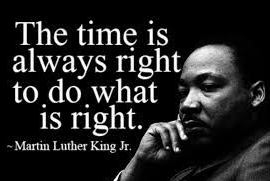The first couple pictures are of my father in Ethiopia, surrounded by close friends and family in celebration of life. The last picture of my dad is at the ceremony to receive his PhD at McGill University. Through his own diligence and hard work, he got a grant to come to one of the best universities in Canada from rural Ethiopia; yet he had to go through the difficult and disheartening process of leaving the people, land, and life he loved to learn what it meant to be black in the West, and an immigrant at the same time.
This last picture reminded me of certain passages in Privilege by Shamus Kahn. At the school my dad went to (McGill University), most of the students were wealthy and children of prestigious alumni. My dad had no one and knew no one, and got a full scholarship there as a result of his extraordinary talent and hard work. There were limits to his achievement, however, as he did not have the same level of education as his fellow peers did. Whenever he did not do as well as others, the students attributed it to the myth that the hierarchical ladder of opportunities is easy to climb if you simply put in the hard work. They suggested that my father was slacking off when in fact he would sleep a mere two hours a night, take ice baths when he got tired while studying, and often go without meals as he had no money – all while learning the language and culture he was so foreign too. My dad was extremely pressured and burdened to excel because meritocracy only worked for the predominantly elite white community, and he was consistently deprived of the ease and indifference shown by his counterparts. Everyone who came into contact with him was surprised that he was there as an African- and in general, a black person – and often stated that the reason McGill wasn’t as diverse as it could be was because people of color didn’t work hard enough to seize their potential or opportunities, or simply aren’t talented enough. They often attributed his scholarship to the school from Ethiopia as the school’s initiative to diversify, and close-mindedly stated that he simply “got lucky”. They continuously took away the focus from social conditions and assumed that navigating the ladder of social status was easy for anyone willing to work for it. The predominantly white student bodies’ ability to marginalize collective identities and blame individual immigrants and people of color for their inability to attain spots at a prestigious school is something my dad experienced first-hand and continues to define my and other minorities experiences in life today.
This plight of immigrants is one many of us know first-hand. My parents worked gruelingly hard to offer the best they could to their children in the “land of opportunity”. They left cherished family and beloved friends they have never seen again, as many have passed away or themselves have dispersed to various parts of the Middle East and Europe. The burden of being a person of color in this country, and furthermore children of the diaspora, is weighty. The significant anecdotes and proverbs of my parents past and voyage to where they are now, however, are a constant reminder of their strength and vigilance in face of great adversity, and a source of motivation for myself.











